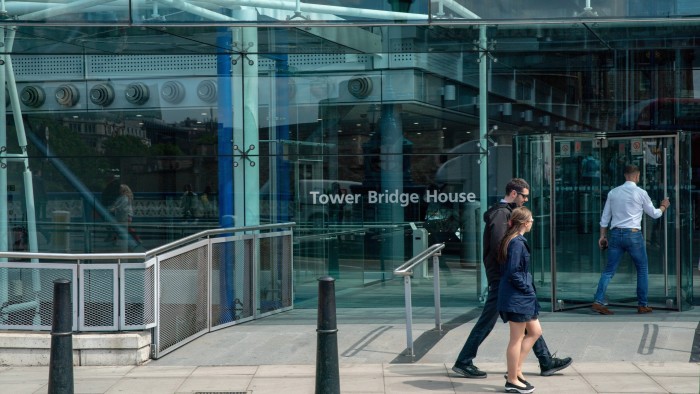UK regulator calls out BDO and Mazars for ‘unacceptable’ shortcomings

Simply sign up to the UK financial regulation myFT Digest -- delivered directly to your inbox.
The UK accounting regulator has criticised BDO and Mazars for “unacceptable” shortcomings in their audits, underlining the challenge the groups face in loosening the grip of the Big Four firms on the market.
In its annual review of audit quality, the Financial Reporting Council highlighted the recurring failings of the two firms while also acknowledging the progress they had made over the past year.
Mid-sized firms such as BDO and Mazars have ambitions to break the stranglehold of the Big Four on the audit of large UK companies — Deloitte, EY, KPMG and PwC audit 98 per cent of companies in the FTSE 100.
But the likes of BDO and Mazars have lagged their larger rivals in recent audit quality inspections as they struggle to make the long-term investments in technology, training and quality control that are required to meet the regulator’s requirements.
The FRC has said it wants the Big Four to face more competition but has said it will prioritise the quality of firms’ work.
According to its latest annual review published on Thursday, Mazars received the lowest inspection scores for the second year running out of the seven “tier one” firms examined. The regulator said it was “unacceptable that failures identified in previous inspections had been repeated this year”.
Only 56 per cent of Mazars’ audits reviewed were found to have been of good quality or to require only limited improvements. None required “significant improvement” — the lowest score.
This was an improvement on last year when only 50 per cent were deemed up to scratch and three audits were found to need significant improvement.
At BDO, the most successful of the mid-tier firms in winning more business among FTSE 350 companies, the number of audits receiving the highest rating rose to 69 per cent from 58 per cent a year ago. Two of the 13 audits inspected were judged in need of significant improvement.
The FRC said: “At BDO, the level of recurring findings is unacceptable. All five key findings identified in the current year have recurred from the previous inspection cycles, with four of those findings having recurred for three years.”
Across the seven “tier one” firms, 77 per cent of the 100 audits inspected received the highest rating, up from 67 per cent three years ago, with only three judged to require significant improvements. Inspections focus on higher risk audits, meaning there is a greater chance of uncovering problems than across the firms’ entire portfolio of work.
Just over 80 per cent of audits at Deloitte and at PwC received the highest quality rating while 80 per cent of EY’s work was in the same category. KPMG ranked lowest of the Big Four with 74 per cent of audits deemed up to standard and one audit requiring significant improvement.
All five Grant Thornton audits inspected received the highest rating. The firm has not sought to grow its audit practice as quickly as its mid-tier rivals after significant problems at clients such as collapsed café chain Patisserie Valerie.
“It is encouraging to see the ongoing and consistent improvement in audit quality at the largest audit firms,” said Sarah Rapson, FRC deputy chief executive.
However, the regulator said inconsistent execution of audits continues to hamper the quality of the profession’s work. Rapson welcomed improvements by Mazars and BDO but said it was “disappointing that there are still significant areas of their work that need to be addressed and the FRC will continue its increased level of supervision”.
Scott Knight, head of audit at BDO, said the inspections showed improvement by his firm. “We are disappointed that there are recurring findings but we knew our investments and enhancements would take time to fully embed and impact our inspection results,” he added.
Mazars said: “While we are disappointed with the number of audits requiring improvement . . . we are encouraged by evidence that actions taken since [the 2021 financial year] have started to have a positive impact on quality.”
Comments